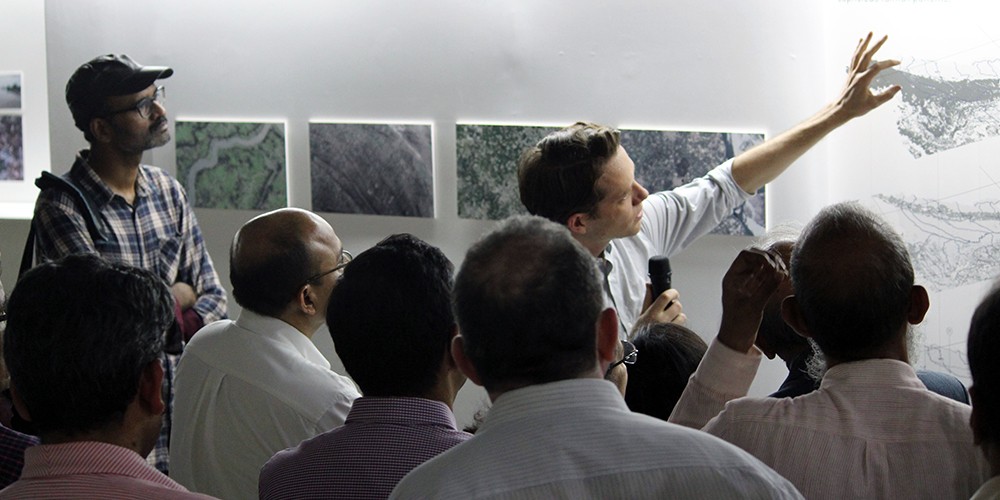Siphoning the Underground with Anthony Acciavatti
& Panel Discussion with AIA Rhode Island Architects
November 18, 2025, 6:00 pm List 120 Reception to follow
REGISTER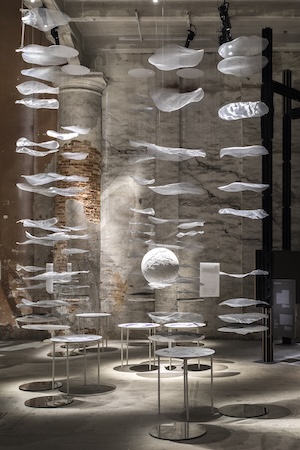
Developed in collaboration with AIA Rhode Island, the 2025-2026 Spear Lecture will center environmental histories and contemporary practices of architecture in New England. One of the most distinctive features of New England is its relationship to water. The region is defined by shorelines and wetlands, which have posed both challenges and opportunities for architects, designers, and builders throughout history. Join us as we focus on this topic with historian Anthony Acciavatti in conversation with practicing architects in Rhode Island.
Acciavatti's lecture Siphoning the Underground explores the ways in which cities and agricultural landscapes across the globe have come to rely on groundwater for drinking and irrigation. By examining the unintended consequences of over extraction, from sinking cities to contamination, and how they are compounded by the impacts of climate change, we will see how vital this often-invisible source of freshwater is to billions of people. The talk will foreground the delicate hydrological processes that shape aquifers, with a focus on the evolution of two of the most over-extracted landscapes on the planet, South Asia and the American West, and how they came to be laboratories for groundwater extraction since the nineteenth century. Special attention will be given to groundwater challenges in Rhode Island and New England, where saltwater intrusion and contamination pose risks. By foregrounding our thirst for groundwater and increasing vulnerability to over-extraction, the lecture underscores the need to shift our perception of aquifers as a common resource—like the air we breathe—in order to reimagine how deeply affected it is by individual and collective actions.
About Anthony Acciavatti
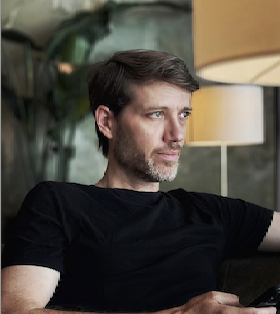 Anthony Acciavatti is Diana Balmori Assistant Professor at the Yale University School of Architecture. He works at the intersection of architecture, landscape, and the histories of science and technology. He explores the hidden underworlds of the earth and how they shape the way we live in cities and cultivate landscapes. Acciavatti is the author of the award-winning book, Ganges Water Machine, which is based on nearly a decade of crisscrossing the world’s most densely populated river basin by foot, boat, and car. His work on the Ganges is in the permanent collection of the Victoria and Albert Museum in London. He has exhibited at the Milan Triennial, the Wellcome Collection in London, Yale University, Rhode Island School of Design, as well as biennials in Venice, Seoul, Rotterdam, and Quito. Trained in architecture at the Rhode Island School of Design and Harvard University, in the history of science at Princeton University, and a Fulbright Scholar in the department of geography and town and country planning at the University of Allahabad, he is a Fellow of the American Academy in Rome and a Senior Fellow at the American Institute of Indian Studies. A founding partner of Somatic Collaborative in New York City, Acciavatti currently leads Ganges Field Lab at Collaborative Earth and is the inaugural Diana Balmori Associate Professor at Yale University.
Anthony Acciavatti is Diana Balmori Assistant Professor at the Yale University School of Architecture. He works at the intersection of architecture, landscape, and the histories of science and technology. He explores the hidden underworlds of the earth and how they shape the way we live in cities and cultivate landscapes. Acciavatti is the author of the award-winning book, Ganges Water Machine, which is based on nearly a decade of crisscrossing the world’s most densely populated river basin by foot, boat, and car. His work on the Ganges is in the permanent collection of the Victoria and Albert Museum in London. He has exhibited at the Milan Triennial, the Wellcome Collection in London, Yale University, Rhode Island School of Design, as well as biennials in Venice, Seoul, Rotterdam, and Quito. Trained in architecture at the Rhode Island School of Design and Harvard University, in the history of science at Princeton University, and a Fulbright Scholar in the department of geography and town and country planning at the University of Allahabad, he is a Fellow of the American Academy in Rome and a Senior Fellow at the American Institute of Indian Studies. A founding partner of Somatic Collaborative in New York City, Acciavatti currently leads Ganges Field Lab at Collaborative Earth and is the inaugural Diana Balmori Associate Professor at Yale University.
Acciavatti was awarded the Gilmore D. Clarke and Michael Rapuano/Kate Lancaster Brewster Fellowship in Landscape Architecture at the American Academy in Rome (2024-25) and a Senior Fellowship from the American Institute of Indian Studies (2024-26).
In 2024, he exhibited ongoing research at the Yale School of Architecture on the hidden front lines of climate change: groundwater extraction. Based on nearly two decades of work, Groundwater Earth: The World before and after the Tubewell, investigates how our thirst for water has radically reshaped cities and farms across the world. The exhibition will travel to Asia in 2025.
In 2025, marking two decades of work in South Asia, Acciavatti will publish The Values of Imprecision: Tools for Navigating Environmental Uncertainty. The book explores the making of instruments to visualize environmental change and their relationship to objects from the histories of science and art.
Building on nearly two decades worth of research, Acciavatti currently leads Ganges Lab at Collaborative Earth. Composed of a trans-disciplinary group of scientists, engineers, and designers, the lab is developing new forms of civic infrastructure that integrates the rhythms of the monsoons with urban growth and agricultural production.
His work and writing have been featured in The New York Times, The Public Domain Review, MOLD, Cabinet, Indian Express, Architectural Design, Harvard Design Magazine, Bracket, and Topos among other places.
About our AIA Rhode Island Panelists
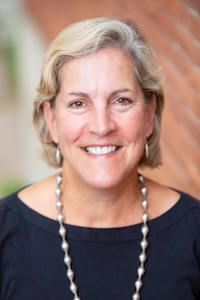 Martha L. Werenfels, FAIA, LEED AP, Senior Principal at DBVW Architects
Martha L. Werenfels, FAIA, LEED AP, Senior Principal at DBVW Architects
Martha Werenfels is a Senior Principal at DBVW Architects in Providence, RI. Martha was recently made a Fellow of the American Institute of Architects based on her accomplishments in design and historic preservation. Martha has extensive experience in a wide range of historic preservation projects, including restoration of national historic landmarks, rehabilitation of various building types, and compilation of preservation feasibility studies. Martha serves on the boards of the Historic Preservation Education Foundation, the Public Archaeology Lab, and the RIHPHC Review Board. She holds a Bachelor of Architecture from Cornell University and a Master's Degree in History from Brown University.
 David Sisson, AIA, LEED AP, Principal Architect at David Sisson Architecture
David Sisson, AIA, LEED AP, Principal Architect at David Sisson Architecture
David Sisson founded the firm in 2013, bringing with him two decades of large scale, public and institutional experience with expertise in municipal, educational and medical projects. The firm has continued to work on a wide range of project types including municipal, small and large scale multifamily residential, adaptive reuse, rehabilitation, historic preservation, commercial, religious and educational. He has served as an educator at both the University of Michigan and Rice University, and as a member of the Planning Board in Ypsilanti, Michigan. He currently sits on the Pawtucket Historic Commission, the Pawtucket School Committee Facilities Subcommittee, and on the board of ACE Rhode Island. He is a registered architect in eight states and a proud member of the American Institute of Architects, the US Green Building Council, and the National Council of Architectural Registration Boards. He is a LEED Accredited Professional in Building Design and Construction.
 Spencer Alexander, AIA, LEED AP, Principal at Anderson Alexander Architects
Spencer Alexander, AIA, LEED AP, Principal at Anderson Alexander Architects
Spencer Alexander holds an undergraduate degree from the University of Rochester in Economics, Biology, and Art History; a Master’s Degree from Illinois Institute of Technology in Architecture, Certificates in Construction Management from NYU SCPS, Deconstruction and Reuse from Yestermorrow Design School, Management Certificate in Public Health from the University of Rochester Simon School of Business and LEED professional certificate. Spencer started his career in finance at State Street Bank in Boston and transitioned to Construction Management with Northbrook Partners/ Blackrock Investments. He worked on several major capital improvement buildings including the 520 West 28th Street project designed by Zaha Hadid/ILA. After becoming a Project Manager, Spencer continued to work on high-end residential, hospitality, and modular projects with firms in NYC, until the formation of Anderson Alexander Architects in 2019.
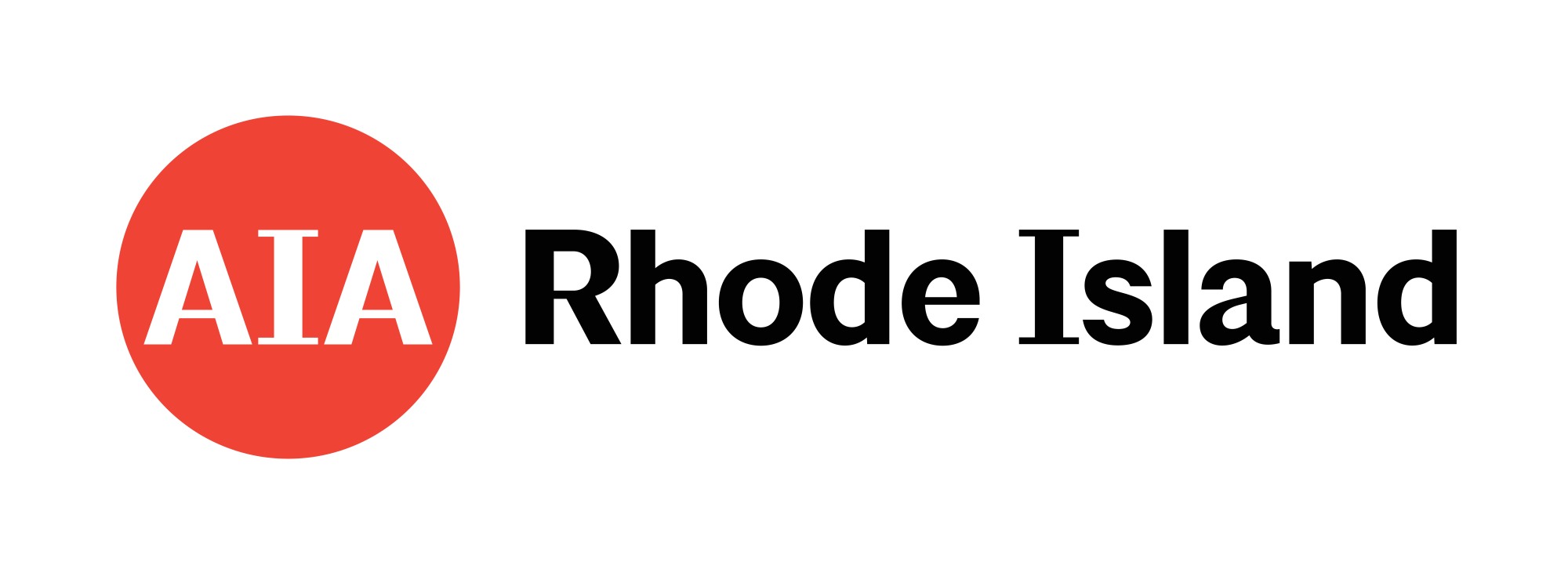
About AIAri
Founded in 1875, The American Institute of Architects Rhode Island, Inc. is a professional association representing over 300 architects, architectural design professionals, and allied members. AIA Rhode Island is highly committed to excellence in architecture and service to the public, endeavoring to bring together and serve all who are interested in the art and science of architecture. The organization is dedicated to enhancing the quality of our built environment, and thereby the quality of life. AIA Rhode Island aspires to increase the public’s knowledge and understanding of the architectural profession, expand the knowledge of all participating in the architectural process, and improve the quality of services provided by architectural professionals.
The 2025 Laurinda Spear 72' Lecture Series on the Visual Arts is co-sponsored by the Department of the History of Art and Architecture and the Department of Visual Art.
